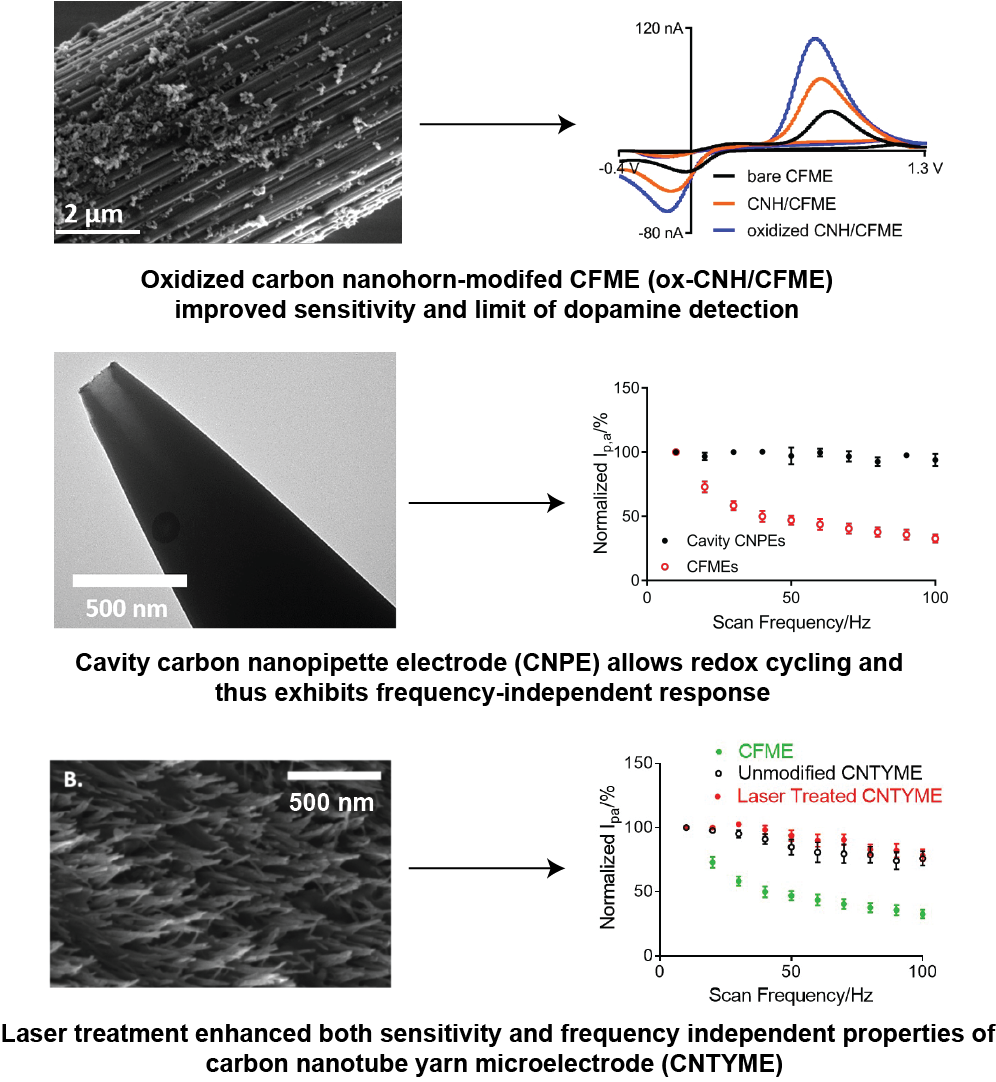Carbon nanomaterials such as carbon nanotubes exhibit interesting physicochemical properties such as high specific surface area and high edge-to-basal graphitic ratio. The Venton Lab explores the electrochemical properties of carbon nanomaterial-modified and carbon nanostructured electrodes to improved the sensitivity, temporal resolution, and antifouling properties for the FSCV detection of neurotransmitters. Recently, we have characterized carbon nanospikes, carbon nanohorns, and carbon nanopipette electrodes. Synthesis and characterization of carbon nanomaterials and modified electrodes are partially performed at the Center of Nanophase Materials Sciences, Oak Ridge National Lab.

Representative Publications
Cao, Q. ; Hensley, D. K. ; Lavrik, N. V. ; Venton, B. J. Carbon nanospikes have better electrochemical properties than carbon nanotubes due to greater surface roughness and defect sites. Carbon 2019, 155, 250-257.
Puthongkham, P. ; Venton, B. J. Nanodiamond Coating Improves the Sensitivity and Antifouling Properties of Carbon-Fiber Microelectrodes. ACS Sensors 2019, 4, 2403-2411.
Yang, C.; Hu, K.; Wang, D.; Zubi, Y. S.; Lee, S. T.; Puthongkham, P.; Mirkin, M. V.; Venton, B. J. Cavity Carbon Nanopipette Electrodes for Dopamine Detection. Analytical Chemistry 2019, 91, 4618-4624.
Cao, Q. *; Puthongkham, P. *; Venton, B. J. Review: new insights into optimizing chemical and 3D surface structures of carbon electrodes for neurotransmitter detection. Analytical Methods 2019, 11, 247-261.
Puthongkham, P. ; Yang, C. ; Venton, B. J. Carbon Nanohorn-Modified Carbon Fiber Microelectrodes for Dopamine Detection. Electroanalysis 2018, 30, 1073–1081.
